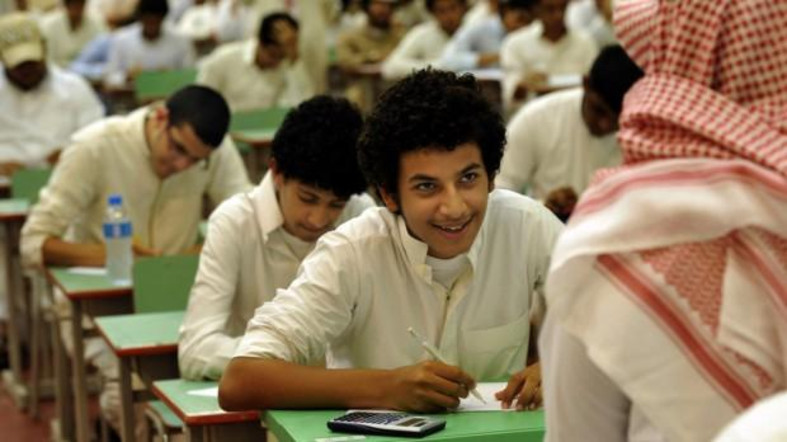It is not strange that the most distinguished science and mathematics students are from the most developed countries in the world: South Korea, Singapore, Japan and other major industrial countries.
It is also no secret that development and advancement are linked to teaching these two subjects and excelling in them.
It was rather a precious gift of UAE’s Vice President and Prime Minister Sheikh Mohammed bin Rashid to announce the project to translate more than 5,000 videos related to maths and science material into Arabic making them available for around 50 million students across the Arab world.
This will be a candle that lights up the already stumbling path of education in the Arab world, as he put it. He also called for volunteers to step forward and help translate thousands of videos which have been already translated into different languages for teaching purposes.
Teaching physics, chemistry, biology, and maths in Arab schools face a lot of challenges because most teachers are not qualified and most schools are actually poor not equipped with laboratories and illustrative material.
In addition, the atmosphere at home and in society do not encourage students to focus on these subjects.
Video learning and e-learning narrow the gap especially with the fast and widespread use of cellular phones among children.
Of the available models, take India for example. Relying on video learning contributed to overcoming challenges in schools where teachers have weak skills and shortage in potentials.
Education is any nations’ path to progress and transformation and almost all Arab countries suffer from the failure of education policies, and as a result, we pay a high price.
Had the governments adopted education as its own project and focused on it within the framework of a strategy that suits each country’s needs and circumstances, we could have exited the bottleneck we are stuck in and keep up with the advancing world, some of which suffered from failure until recently.
Teaching is a difficult profession and its results are long-term and require a lot of time to yield, with its most challenging subjects: math and science.
Every four years, international institutions study a sample of students from all over the world. They examine the achievements of around 4,000 students in grades between the 4th and 8th, and evaluate each country’s capabilities and predict its future according to them.
This project is for everyone across the Arab world. Granting educational services for free is the greatest gift which can be given to any student who knows Arabic language and has a cellular phone or a laptop or service anywhere.
The project will be presented once it’s done next year. It will sum up global math and science curricula and most of it will be the same for all students all over the world, from kindergarten until the last year of high school.
This marks the first step that can encourage benefiting from technology and using it to modernize education to save time and overcome difficulties. Education in the Arab world is moving in a vicious circle as it requires highly-qualified teachers, expensive equipment, and smaller classes all within a comprehensive policy.
Most of these demands are not available today and 100 years might pass before they are even developed.
That is why e-learning is the solution, not only to teach math and science but to teach all the rest of the curricula throughout all school stages.
